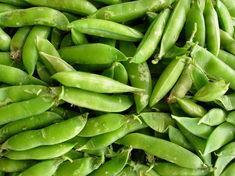
Early indicators point to a favourable pea season, but growers know just how unpredictable Mother Nature can be. The season kicked off last week.
“The spring we have had this year has been on a par with the previous two springs,” says Tim Mudge of the Processed Vegetable Growers’ Association (PVGA), the co-ordinators of the Yes Peas! campaign. “The main problem is during the harvesting, not during the drilling and growing periods. We are waiting to see what happens.”
Doncaster-based Loversall Farm is busy preparing for the upcoming pea season. “It’s early days, but we are hoping for a good season,” says the farm’s Nigel Lee. “We had a cold March and April and it is likely that a larger percentage of the crop will be available in mid-July.”
Lee says he is hoping for more interest in peas. “All food prices are increasing in price, and I’m hoping peas will follow suit,” he adds.
Loversall Farm is on track to supply various supermarkets once again this season, through its involvement with Minor, Weir & Willis Ltd.
The farm increased the area devoted to peas by 10 per cent in 2007. Lee says the Premium and Ambassador varieties are important ones for the producer, which is also trialling Excellence.
South Yorkshire and Lincolnshire account for much of the UK’s pea production, but Mudge says peas have always been produced in Scotland, from Dundee to north of Arbroath. “It is because it is an east-facing seaboard, the only one in Europe which is ideal for quality pea production,” he explains.
Last summer, the Yes Peas! campaign joined forces with UK electrical retailer Comet. “We were delighted that Comet took 10,000 copies of our Yes Peas! recipe booklet to distribute in store alongside its freezers - they took 5,000 copies at first, and then asked for another 5,000,” Mudge tells FPJ.
“Recipe development, which is done for us by celebrity chef Rachel Green, is a key plank of our PR campaign, and the recipe book illustrates perfectly how peas can be used as an innovative ingredient.”
Last year’s recipes included honeyed duck with pea and potato mash with shallots and pea, sausage and tomato fusilli.
Yes Peas! will employ the services of Green once again this year, as well as continuing its focus on promoting the peas.org website. The site was re-designed last year to give it a fresh, contemporary, magazine-style look.
The campaign also collaborated for the first time last year with Tommy’s, the UK’s leading pregnancy healthcare charity. “Peas are high in folic acid, which is essential for expectant mothers, and that relationship is continuing,” Mudge says.
It is nigh on impossible to think of frozen peas without conjuring up images of Birds Eye. The company sources peas from 380 UK pea producers and, within that number, there is a broad spectrum of growers ranging from family-run farms to large-scale businesses, including Farmcare Ltd, according to Birds Eye’s Colin Wright.
The number of suppliers has remained relatively stable over the last four to five years, although there has been a change in the size and make-up of producers.
Wright is optimistic about the upcoming season but says that since the end of May, there has been a tremendous variation in weather across growing regions.
Farmers endured very wet weather in the south of East Anglia, with some places receiving five inches of rain, according to Wright. In contrast, key areas further north, such as Hull, missed the majority of poor weather.
“An advantage of having different growing regions is that we are able to spread our volume risk,” Wright says.
The season normally runs for seven weeks. The majority of peas grown in the UK are sold domestically, although Wright says Birds Eye also supplies Unilever in Italy.
It is no secret that the pea sector has faced hard times over the last two years, but suppliers are confident that with the right conditions, growth can be achieved.
“There are tremendous opportunities for frozen foods - it is an excellent-quality product, highly versatile and convenient, and offers a number of nutritional benefits,” Wright says.
“Food wastage is becoming a key sustainability issue, and there is a lot in the media about how much food we throw away. Frozen food does extremely well on this issue, as there is no waste.”
All farming and processing industries, regardless of product, are having to accommodate dramatic and unprecedented cost price increases, and Wright insists that processors such as Birds Eye are being hit as much as producers.
Due to the adverse weather conditions over the last two years, however, Wright says there has been a major re-alignment of prices and, hopefully, the industry is in a better position to withstand the current hikes.
Birds Eye is investing in a state-of-the-art facility in Hull in partnership with French firm Norbert Dentressangle. “This is going to be the biggest pea operation of its kind in the world, consisting of five pea processing lines and producing 44,000 tonnes of peas a year,” Wright says.
The new facility marks a return for Birds Eye to Hull, as its previous food factory there was closed last year following a review of the company’s European facilities.
“We were always aware that we wanted to retain good relationships with farmers and the region, and the new facility became fully operational on June 20,” Wright says.
Similar to other fresh produce industries, the pea sector has seen much consolidation in the industry and, due to surplus capacity, inevitably rationalisation as well.
However, Wright is confident that the sector is getting to the stage where the capacity potential is better matched to demand.



